Stop genocide against Rohingyas: Gambia to UN court
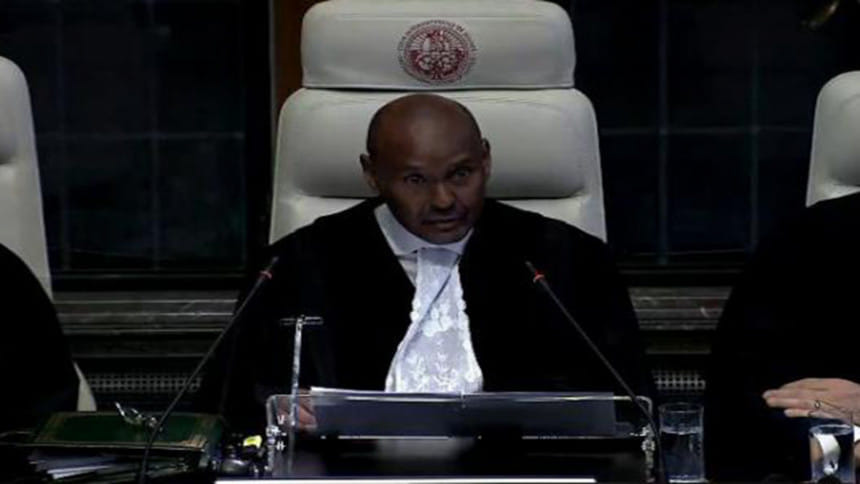
--Genocide unfolding at UN court
--Rohingya genocide by Myanmar still going on
--Many Rohingya families have no one left to mourn their deaths
--Give Rohingya a chance a dignified life
--3hr-long ICJ hearing began 3:55 pm
The Gambia today accused Myanmar of breaching the 1948 genocide convention and urged the UN top court to order Myanmar to stop genocide against the Rohingya minority.
The African country unfolded the evidence of genocide against Rohingyas before the International Court of Justice and urged the court to prosecute the Myanmar generals responsible for the bloody crackdown.
A 15-member panel of judges of ICJ was hearing a case, the first international legal attempt to bring Myanmar to justice over alleged mass killings of the Rohingya minorities in 2017, filed by the Gambia on November 11.
The African country, on behalf of the 57-member Organisation of Islamic Cooperation (OIC), filed the lawsuit accusing Myanmar of violating the UN Genocide Convention.
In his argument, Gambia's Attorney General and Justice Minister Abubacarr Marie Tambadou urged the court to take emergency measures to stop genocide against the Rohingyas.
"Tell Myanmar to stop these senseless killings, to stop these acts of barbarity that continue to shock our collective conscience, to stop this genocide of its own people," Tambadou, a former prosecutor at the tribunal into Rwanda's 1994 genocide, told the judges.
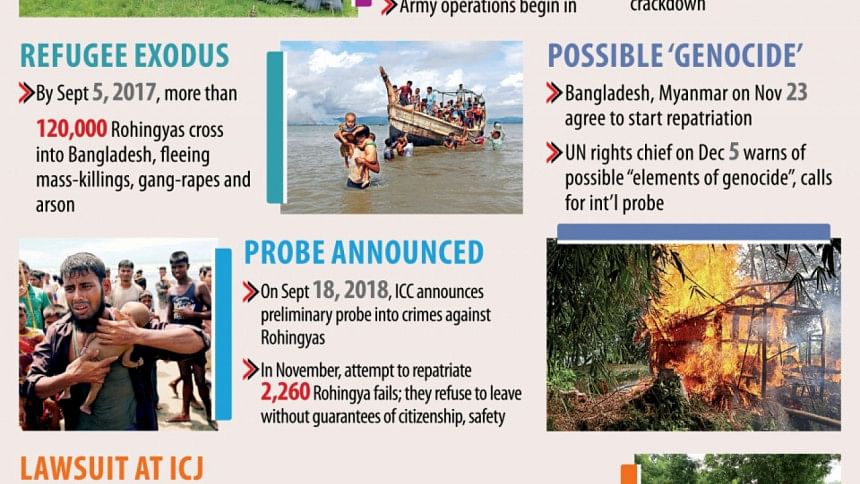
He also appealed to the UN's top court to recognize that genocide against Rohingyas and said every day of inaction means more people are being killed, more women are being raped and more children are being burned alive.
"Another genocide is unfolding right before our eyes yet we do nothing to stop it," Tambadou said.
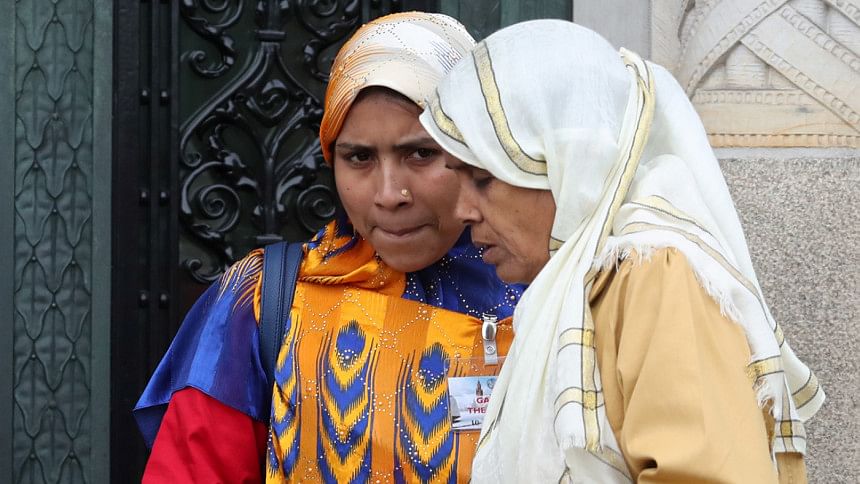
The brutal military crackdown in late August in 2017 forced as many as 740,000 Rohingyas into Bangladesh. They joined some 300,000 others who fled violence in previous phases and took shelter in camps in Cox's Bazar.
Echoing the voice of the justice minister, Payam Akhavan, a lawyer for The Gambia, said, "The genocide is still going on unabated."
"They (Rohingyas) are under the serious need of protection," said Akhavan, an international lawyer and professor at McGill University in Montreal, told the ICJ judges.
Blaming Myanmar's civilian leader Aung San Suu Kyi for her link with the bloody persecution, the Gambia's lawyers said the appearance of huge billboards across Myanmar in featuring pictures of Suu Kyi with three generals showed she was "in it together" with the army that once held her captive.
"It can only be intended to show that they are all in it together and that Myanmar has absolutely no intention of holding its emboldened military leadership accountable," lawyer Paul Reichler told the court, reports AFP.
Suu Kyi defending Myanmar
In a rare move, Myanmar's civilian leader Aung San Suu Kyi, who was awarded the Nobel Peace Prize for her struggle against Myanmar's military dictatorship, is defending her country in court.
Suu Kyi is set to speak in Myanmar's defence on Wednesday. She is expected to argue that Myanmar was conducting legitimate operations against Rohingya militants and that the ICJ has no jurisdiction in the case.
ICJ Hearing Schedule
Today's hearing held from 2:55 pm to 5:55 pm (Bangladesh time). Tomorrow's hearing will be held on the same schedule.
The second round of oral observations will be held on Thursday. The Gambia will deliver from 2:55 pm to 4:25 pm while Myanmar will deliver its observations from 9:25 pm to 10:55 pm (Bangladesh time) on that day.
What happens next?
Gambia has asked the ICJ for emergency measures to protect the Rohingya but this is "only the first step," Mike Becker, an assistant international law professor at Trinity College in Dublin, told AFP.
"These hearings will provide a preview of the overall case, but a full hearing on the merits is still years away," Becker said.
What does the Gambia complaint contain?
Gambia's application identifies two elements of Myanmar's persecution of the Rohingya as "particularly indicative of genocidal intent": its systematic denial of legal rights to Rohingya, notably restrictions on their ability to marry and bear children and severe restrictions on freedom of movement, including detention camps, and its support for, and participation in, pervasive hate campaigns aimed at demonizing and dehumanizing the group, according to a report of Human Rights Watch (HRW).
As for the genocidal acts, the application points to incidents from the October 2016 and August 2017 "clearance operations" including mass executions of Rohingya men, women, and children; the systematic burning of Rohingya villages "with the intent to destroy the group in whole or in part"; the targeting of children; and the commission of rape and sexual violence on a massive scale.
As for ongoing acts of genocide, the application highlights continuing attacks on the Rohingya, notably the destruction of more than 30 villages between November 2018 and May 2019 and the denial to Rohingya of access to food. It also notes the Fact-Finding Mission's recent warning that the 600,000 Rohingya still in Myanmar live under the threat of further genocidal acts by Myanmar.
Who are the ICJ's judges?
Under article 31 of the ICJ Statute, a party to a case before the ICJ can appoint an ad hoc judge to act in the case if it does not already have a judge of its nationality on the bench.
The ICJ's 15-member bench is composed of judges from different countries. Each judge is elected to serve a nine-year term.
ICJ appointed South African jurist Dr Navanethem (Navi) Pillay as its ad hoc judge following the request of Gambia. Pillay served as a judge on the International Criminal Tribunal for Rwanda and the International Criminal Court before becoming the UN High Commissioner for Human Rights from 2008 to 2014.
However, the UN court appointed German academic Professor Claus Kress as its ad hoc judge as per request of Myanmar. Kress is the director of the Institute of International Peace and Security Law at the University of Cologne, Germany.
What is genocide?
"Genocide" was used for the first time within a legal framework at the Nuremberg trials of Nazi officials after World War II over the deaths of six million Jews in the Holocaust unleashed by Adolf Hitler's Germany, Reports AFP.
Coined in 1944 by Raphael Lemkin, a Polish Jew, the term is derived from the Greek word "genos" for race or tribe, and the suffix "-cide" from the Latin word for "to kill."
The term became part of international law in 1948 under the UN Genocide Convention -- the same convention now invoked by Gambia against Myanmar -- and is defined as an "act committed with intent to destroy in whole or in part, a national, ethnic, racial or religious group."
Genocide cases at the ICJ
The court has handed down a final judgment in one other genocide case in the past, in which Bosnia accused neighbouring Serbia of masterminding genocide of Bosnian Muslims during the 1992-95 war, reports Reuters.
In 2007, the ICJ ruled that genocide was committed in Bosnia during the 1995 massacre of some 8,000 Muslim men and boys in Srebrenica. However, the judges said there was not enough evidence that the Serbian government was directly involved in the slaughter. Nonetheless the court found Serbia guilty of violating the convention by failing to prevent genocide.
It is hard to compare the Bosnia-Serbia case to Myanmar because the former was bolstered by a string of judgments at the UN's International Criminal Tribunal for the former Yugoslav, which had already determined the Srebrenica massacre constituted genocide under international law.
Myanmar faces a series of legal contests globally accusing it of alleged atrocities against Rohingya Muslims during a military-led crackdown two years ago, but there are no legal precedents.

 For all latest news, follow The Daily Star's Google News channel.
For all latest news, follow The Daily Star's Google News channel. 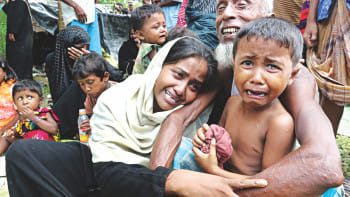



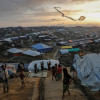

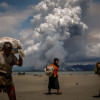


Comments